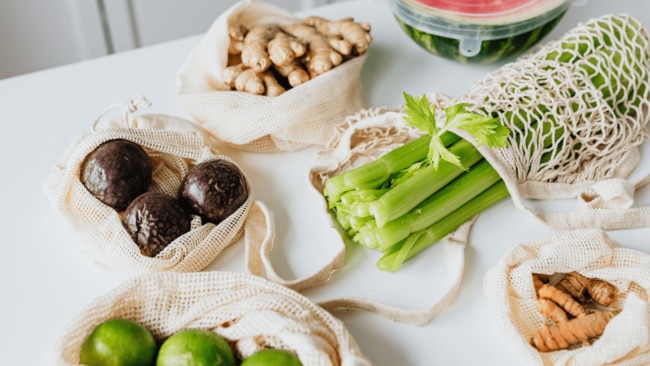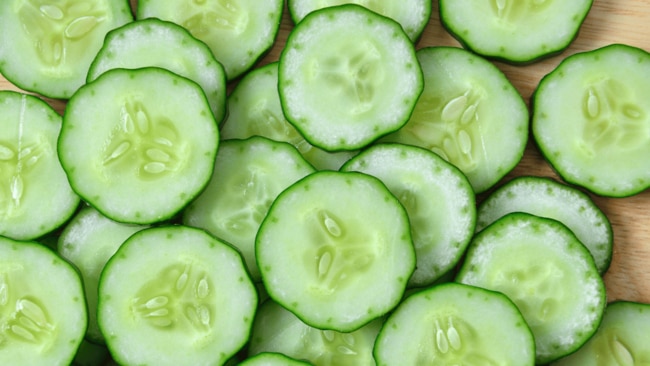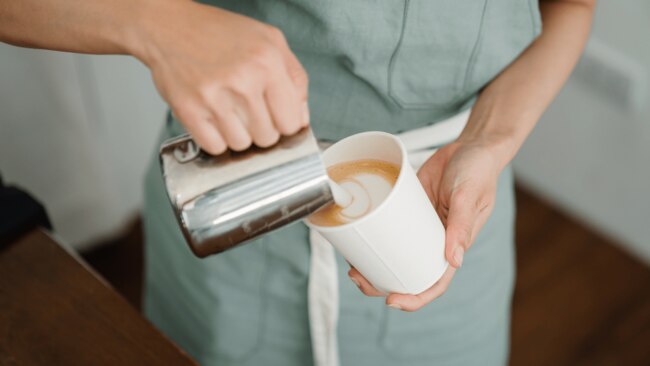The best foods to reduce bloating, according to a dietitian
Lentils did not make the list

Lifestyle
Don't miss out on the headlines from Lifestyle. Followed categories will be added to My News.
Dietitian Susie Burrell shares the most effective foods to relieve a bad case of bloating, as well as what to avoid.
Is there anything worse than feeling bloated? The heavy, uncomfortable abdominal discomfort can have a profound effect on the way you feel for the entire day.
Whether your bloating is a result of the time of the month, eating too much, eating too much salt, or simply eating the wrong thing, knowing the superfoods you can grab to help provide quick relief is key.
The good news is that there are plenty of options, which means tummy relief may be in sight, sooner than you thought.
Like what you see? Sign up to our bodyandsoul.com.au newsletter for more stories like this.
Cucumber, celery and radishes
It may seem counterintuitive to eat more when you are already feeling heavy, but low-calorie foods that have a high-water content will help to move food and fluid through the digestive system helping to relieve bloating and tummy distention quickly.
Specifically, it is the lighter salad vegetables such as cucumber and celery which offer these digestive benefits minus the extra gas that is associated with the cruciferous vegetables such as broccoli and cauliflower which can exacerbate bloating in those who are sensitive. Even better, opt for your veggies to be juiced, for a concentrated fibre and potassium hit.
Yoghurt
Not only is natural or Greek yoghurt extremely nutritious, yoghurts that contain added ‘good bacteria’ or probiotics help to naturally regenerate the good bacteria found in the gut which helps to reduce gas, bloating and digestive discomfort quickly.
In addition, a daily serve of a probiotic supplement or yoghurt will help to keep the gut in optimal health, eliminating wastes and gases quickly, which can further act to prevent gastric discomfort. Seek out plain yoghurts that have live cultures added, or fermented options like kefir for a daily dose of the bugs known to help bloating at bay.

Kiwi fruit
A superfood thanks to its extremely high vitamin C content, and a fruit that is currently in season, while all fruits are good options nutritionally, kiwi fruit contains the enzyme actinidin, which has been shown to aid digestion.
Kiwi fruit also offers high amounts of dietary fibre and potassium, nutrients which further help to move food through the digestive tract and support regular bowel motions, making them a smart addition for digestive comfort.
Coffee
While some people who are sensitive to milk may find that coffee can bloat them, for many others the stimulatory effect of caffeine will quickly help to get the digestive system moving and trigger a bowel movement. If you find that too much milk can actually result in bloating, it may be time to try a lactose-free milk alternative to see if that gives you the digestive benefits, minus any gut ill effects.

Herbal tea
There are a number of herbal teas including liquorice and dandelion that can help to reduce bloating thanks to their diuretic properties, and while a cup or two may help to reduce fluid retention relatively quickly, you can have too much of some varieties so don’t overdo things.
Peppermint tea in particular has been used for centuries to help ease gut discomfort and comes with less of a concern regarding overconsumption. Peppermint tea helps to relax the muscles in the digestive system, which in turn helps to relieve bloating and gassy build-up, so is a must to keep on hand for those more susceptible to tummy trouble, especially after eating.
Ginger
Commonly thought of as a remedy for colds and flu, ginger has been sought after for its natural anti-inflammatory benefits for hundreds of thousands of years but perhaps we should consider it for its digestive benefits more often.
Specifically, ginger helps to reduce the pressure in the digestive system, relaxing the intestines, and helping to move food through the digestive tract more efficiently, reducing gas and bloating. For this reason, adding ginger to mixed dishes, or sipping on herbal ginger tea or even hot water with lemon and ginger added is an easy way to self-manage digestive discomfort.
Originally published as The best foods to reduce bloating, according to a dietitian



